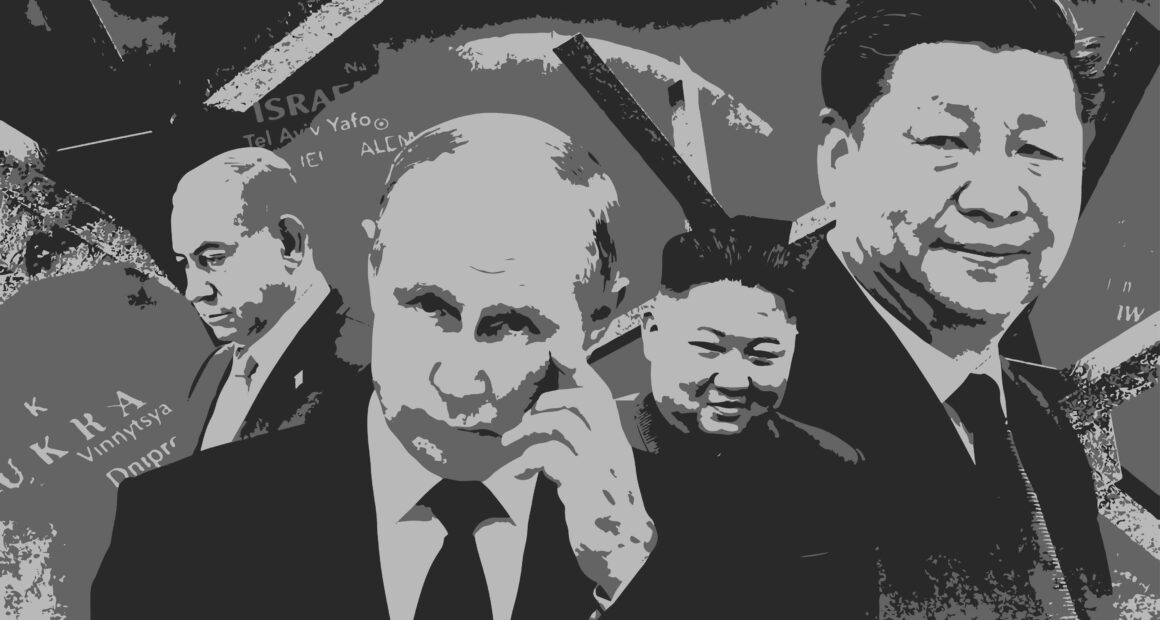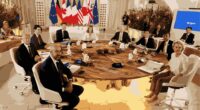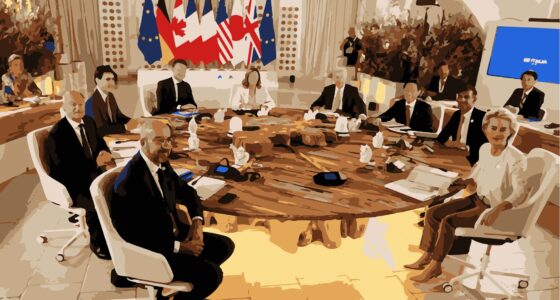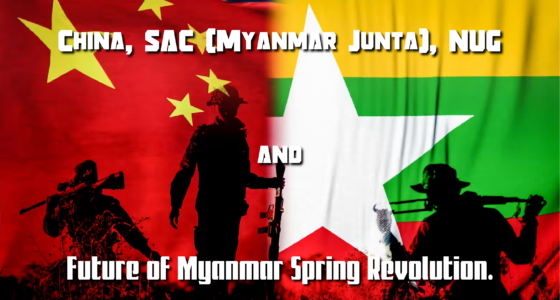World War III is a concerning topic that reflects fears about escalating conflicts and geopolitical tensions. The idea of another global war brings up the potential for immense human suffering and the devastating consequences of modern warfare. It’s crucial for nations to prioritize diplomacy and peaceful resolutions to avoid such scenarios. Promoting understanding and cooperation can help prevent conflicts from escalating to that level.
The potential for World War III hinges on various geopolitical factors, historical tensions, and current global dynamics. Here’s a detailed analysis:
1. Geopolitical Tensions
- Major Powers: The relationships between major powers like the U.S., China, and Russia are critical. Increasing tensions over trade, territorial disputes, and military posturing can escalate into larger conflicts.
- Regional Conflicts: Areas such as the South China Sea, Eastern Europe (e.g., Ukraine), and the Middle East are flashpoints. Local conflicts can draw in larger powers, creating a broader confrontation.
2. Military Alliances
- NATO and Other Alliances: The existence of military alliances like NATO can either deter aggression (through collective defense) or escalate conflicts if one member is attacked and allies respond.
- Strategic Partnerships: Countries forming alliances based on shared interests can create rival blocs, increasing the risk of miscalculations leading to larger conflicts.
3. Nuclear Deterrence
- Mutually Assured Destruction (MAD): The presence of nuclear weapons acts as a deterrent to full-scale wars, as the stakes are incredibly high. However, the risk of accidental launches or misinterpretations remains.
- Nuclear Proliferation: As more nations acquire nuclear capabilities, the potential for conflicts involving these weapons increases, heightening global tensions.
4. Economic Factors
- Resource Scarcity: Competition for resources (water, energy, minerals) could lead to conflicts, especially in regions already facing instability.
- Economic Sanctions and Trade Wars: Economic measures can escalate tensions between countries, potentially leading to military confrontations if nations feel threatened.
5. Technological Warfare
- Cyber Warfare: Cyberattacks can destabilize nations and provoke responses, possibly leading to military confrontations.
- AI and Autonomous Weapons: The development of advanced military technologies can lead to an arms race and increase the risk of conflicts arising from miscalculations.
6. Political Instability
- Domestic Issues: Political instability within countries can lead to aggressive foreign policies as leaders attempt to distract from domestic problems.
- Nationalism and Populism: Rising nationalism can lead to confrontational policies and a willingness to engage in conflicts that might have been avoided in a more diplomatic climate.
7. Global Institutions
- Failures of Diplomacy: The ineffectiveness of international institutions (like the UN) to mediate conflicts can exacerbate tensions. A lack of dialogue can lead to misunderstandings and escalation.
- Humanitarian Crises: Large-scale humanitarian issues (like mass migrations due to war or climate change) can strain international relations and lead to conflicts over resources and borders.
The relationships between the U.S., China, and Russia post-U.S. elections will depend on various factors, including the election outcome, domestic policies, and global dynamics. Here’s a breakdown of potential scenarios:
1. If the U.S. Elects a Hawkish Administration
- Tougher Stance on China: An administration focused on confronting China might escalate trade tensions and military posturing in regions like the South China Sea. This could lead to increased tariffs, sanctions, and military exercises.
- Increased Pressure on Russia: A hawkish U.S. could impose more sanctions on Russia, particularly regarding its actions in Ukraine and its cyber activities. This might deepen the adversarial relationship.
- Strengthening Alliances: The U.S. may seek to reinforce alliances with NATO and Indo-Pacific countries, aiming to counter both China and Russia, potentially leading to a more polarized global environment.
2. If the U.S. Elects a Diplomatically Oriented Administration
- Engagement with China: A more diplomatic approach might focus on collaboration in areas like climate change, trade, and global health while managing competition more constructively. This could involve negotiations to reduce tensions.
- Balancing Act with Russia: The U.S. could pursue a dual strategy of deterrence and engagement, seeking arms control agreements while addressing regional conflicts diplomatically.
- Multilateralism: Emphasis on working with international organizations and allies to address global issues, potentially reducing unilateral actions that heighten tensions.
3. Economic Factors
- Trade Policies: The economic relationship with China will significantly influence diplomacy. If the U.S. prioritizes economic competition, it may lead to ongoing trade wars, while a focus on cooperation could result in renewed trade agreements.
- Sanctions and Energy: Relations with Russia will also be influenced by energy markets, particularly European dependence on Russian gas. U.S. policies could impact global energy dynamics.
4. Regional Conflicts
- Ukraine and Taiwan: Ongoing conflicts in Ukraine and Taiwan will be crucial. The U.S. response to these situations will affect its relationships with both Russia and China. Increased military support for Ukraine could escalate tensions with Russia, while support for Taiwan could provoke China.
- Middle East Dynamics: The U.S. role in the Middle East, especially regarding Iran and regional allies, could also influence relationships, particularly with Russia, which has strategic interests in the region.
5. Global Challenges
- Climate Change: Cooperation on global issues like climate change could provide a platform for dialogue, even amid tensions. Joint efforts in this area might foster a more collaborative spirit.
- Public Health and Pandemics: Collaborative responses to global health crises could also influence diplomatic relations positively.
The prospect of World War III is a complex and concerning topic that reflects a range of geopolitical, social, and technological factors. Here’s a look at potential futures for the world in the context of this issue:
1. Geopolitical Landscape
- Increased Multipolarity: The world may move towards a multipolar system where multiple powers (U.S., China, EU, India, Russia) exert influence. This could lead to shifting alliances and increased competition, but also opportunities for diplomacy.
- Regional Conflicts: Localized conflicts may arise in hotspots like the South China Sea, Eastern Europe, and the Middle East. These conflicts could potentially escalate if major powers become involved, heightening the risk of broader wars.
2. Military Technology and Warfare
- Advancements in Technology: The future of warfare will likely involve sophisticated technologies, including cyber warfare, drones, and artificial intelligence. These advancements could change the nature of conflicts, making them more unpredictable and potentially less conventional.
- Nuclear Deterrence: The presence of nuclear weapons acts as a deterrent against full-scale wars. However, the risk of miscalculations or accidental launches remains a significant concern.
3. Economic Interdependence
- Globalization: Despite rising nationalism, economic interdependence could act as a stabilizing factor. Countries that are economically linked may be less likely to engage in conflicts that would disrupt trade and financial systems.
- Resource Scarcity: Competition for resources like water, energy, and arable land could lead to tensions, particularly as climate change impacts availability.
4. Social and Environmental Issues
- Climate Change: Environmental crises may exacerbate existing tensions and create new conflicts, particularly over resources and migration. Global cooperation will be essential to address these challenges effectively.
- Public Health: Future global health crises could also impact international relations, with countries either cooperating or competing for resources, vaccines, and support.
5. International Institutions
- Role of Multilateral Organizations: The effectiveness of organizations like the United Nations in mediating conflicts and promoting dialogue will be crucial. Strengthening these institutions could help manage tensions and prevent escalation.
- Diplomacy and Dialogue: A future focused on diplomacy and conflict resolution is essential. Engaging in dialogue can help mitigate misunderstandings and reduce the likelihood of war.
6. Public Sentiment and Leadership
- Nationalism vs. Globalism: The balance between nationalist sentiments and global cooperation will shape international relations. Leaders who prioritize diplomacy over aggression could foster a more peaceful future.
- Citizen Engagement: Public opinion can influence government actions. Increased awareness and activism around global issues may pressure leaders to pursue more peaceful policies.
Conclusion
While the risk of World War III exists, the global community is increasingly aware of the catastrophic consequences of such a conflict. Diplomatic efforts, economic interdependence, and the potential for nuclear deterrence serve as crucial factors in preventing escalation. However, vigilance is essential, as underlying tensions can ignite rapidly. Encouraging dialogue, addressing root causes of conflicts, and fostering cooperation are vital to maintaining global peace.
The post-election relationships between the U.S., China, and Russia will be shaped by the elected administration’s priorities, the state of global politics, and the ongoing challenges each nation faces. While tensions are likely to persist, opportunities for cooperation in specific areas may still emerge, depending on leadership choices and international developments. Monitoring the evolving landscape will be crucial to understanding these dynamics.
While the risk of World War III is a genuine concern, the future is not predetermined. The actions of leaders, the resilience of international institutions, and the capacity for cooperation on global challenges will all play vital roles in shaping the world. Prioritizing diplomacy, understanding, and collective action is crucial for preventing large-scale conflicts and fostering a more stable and peaceful global environment.








